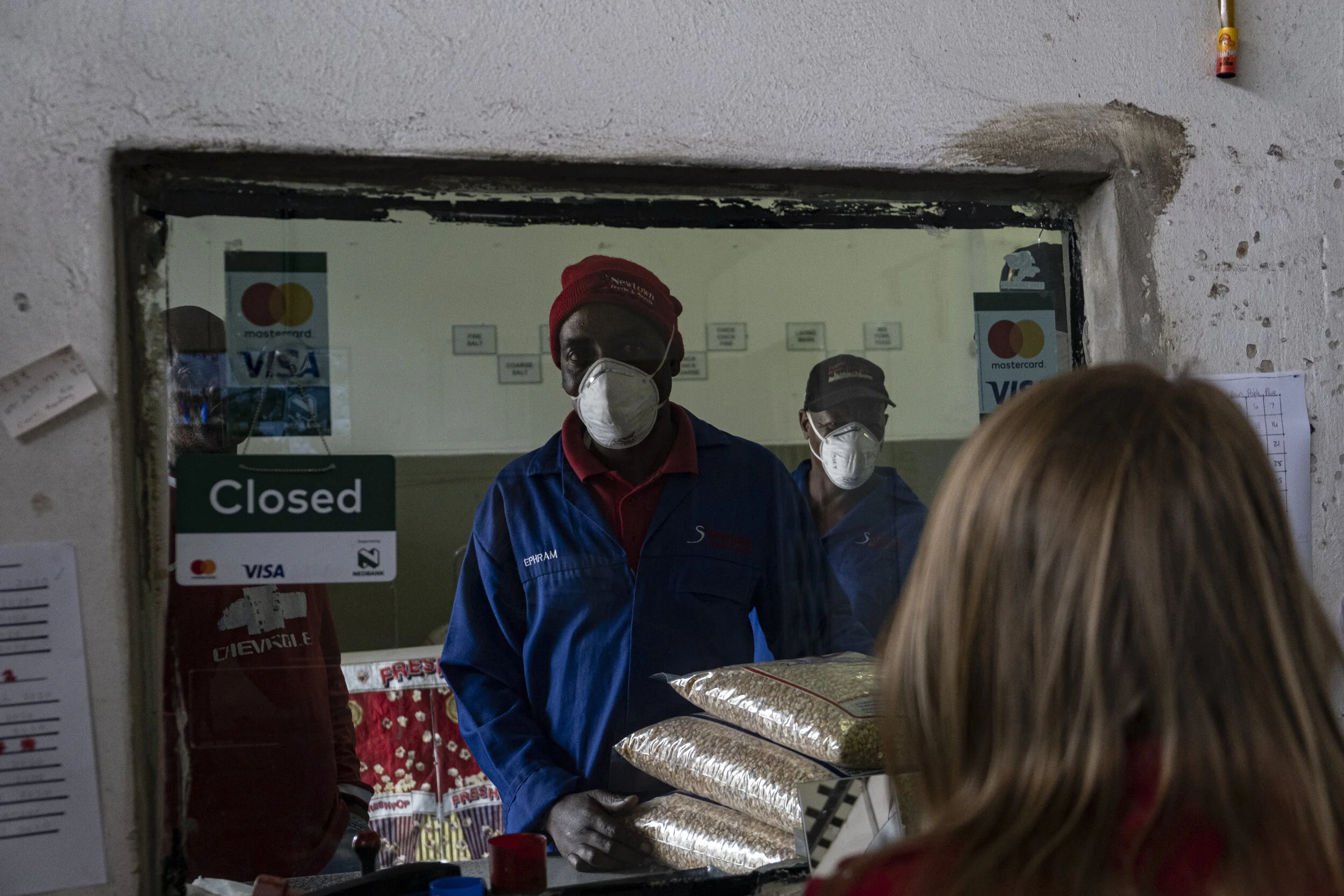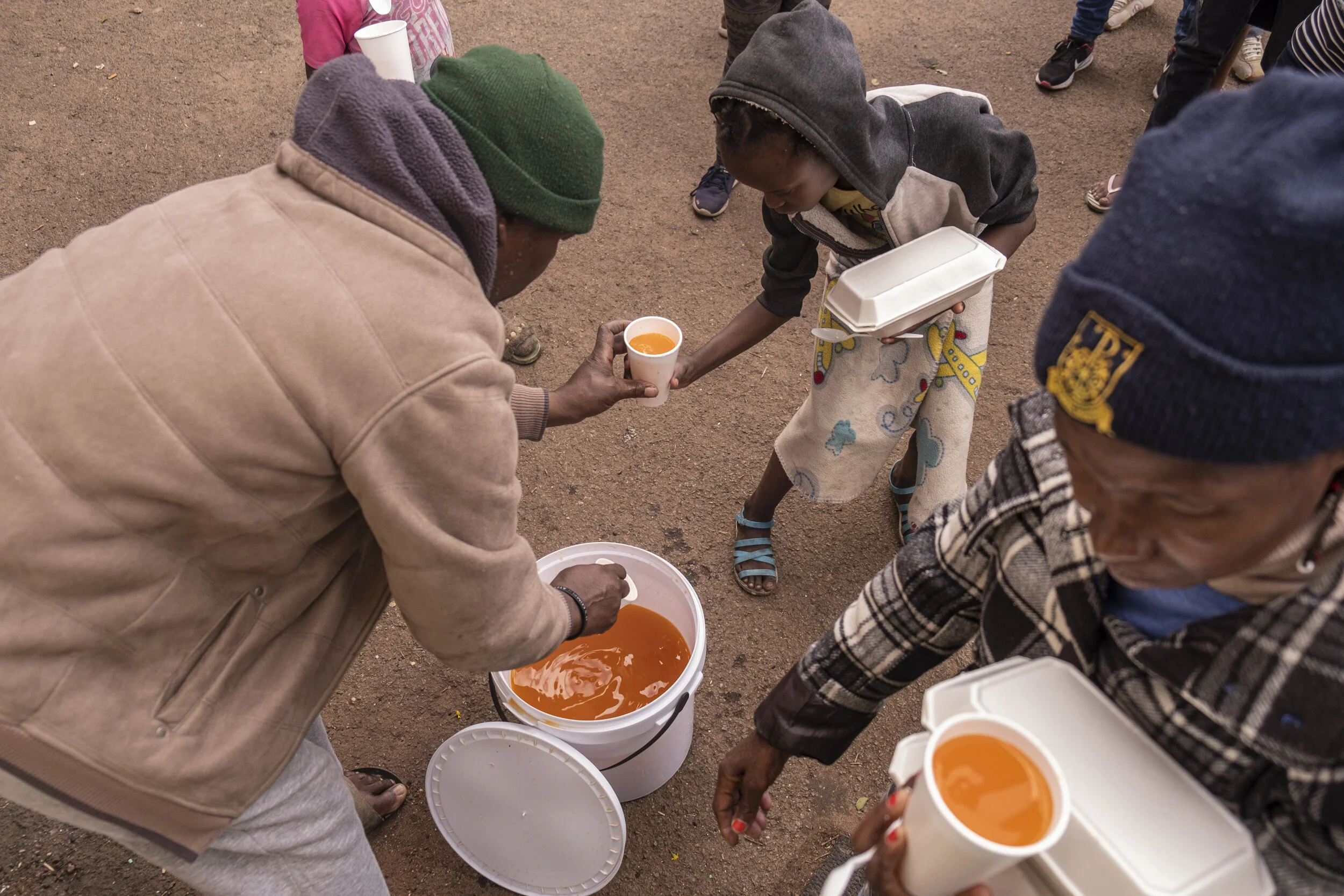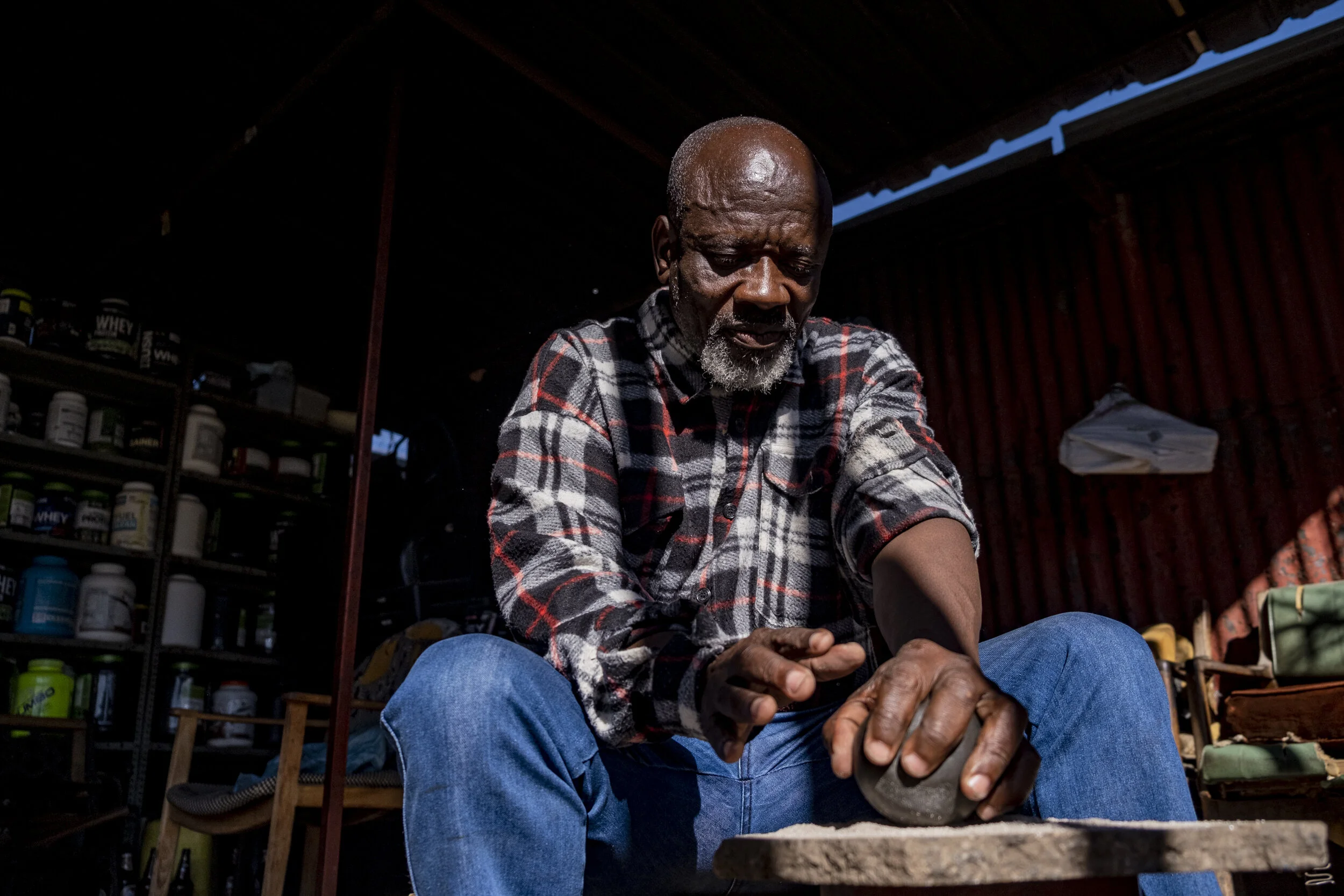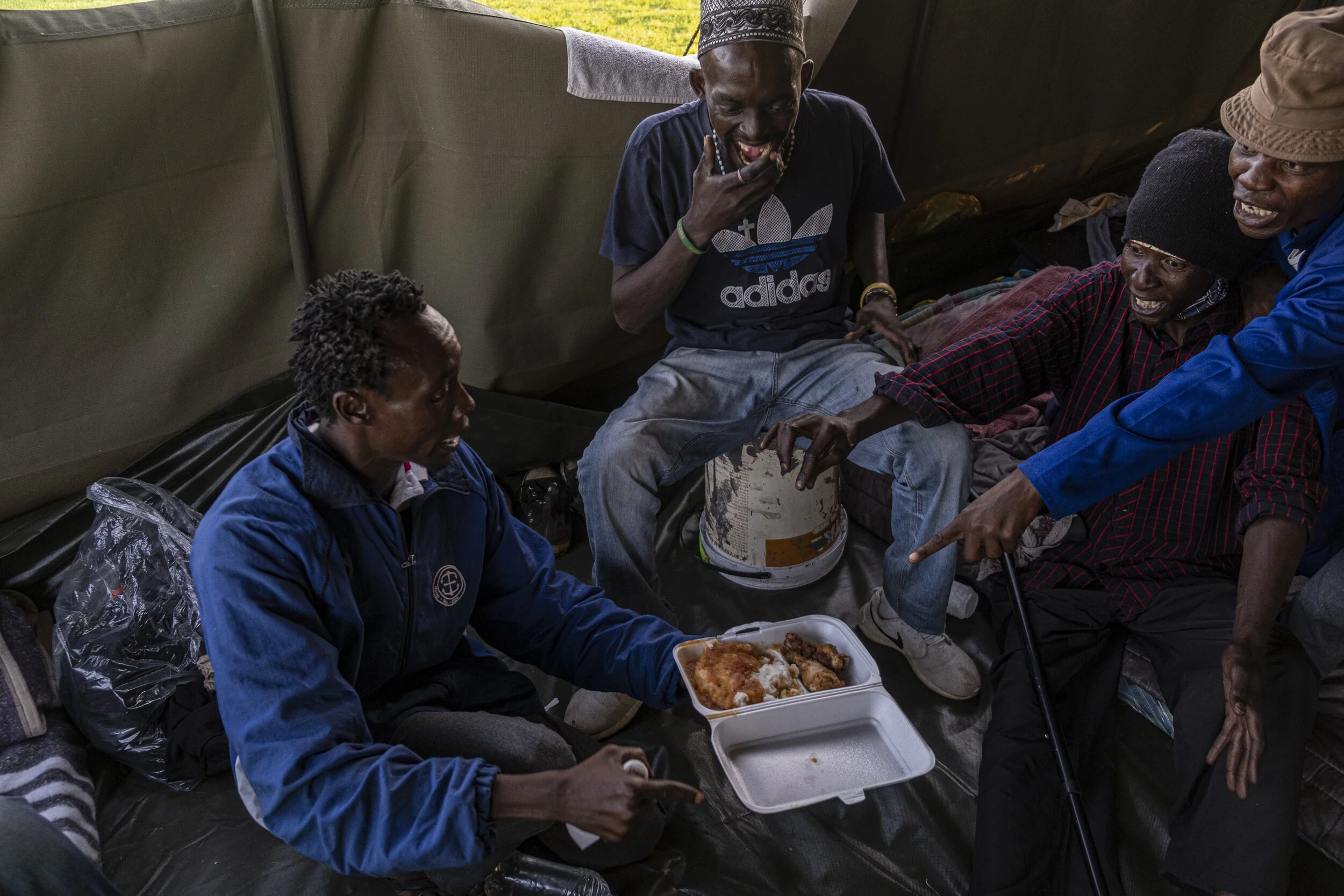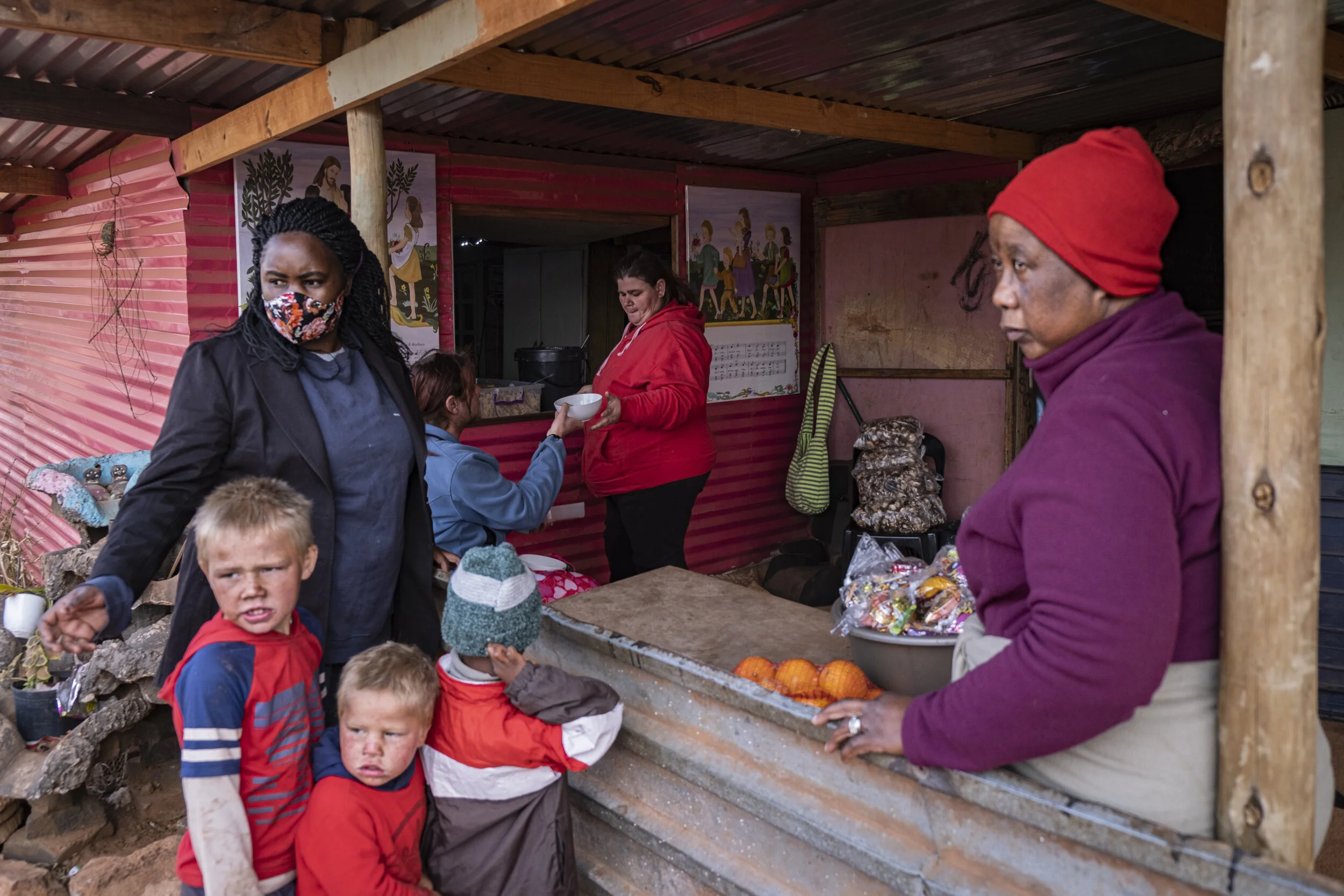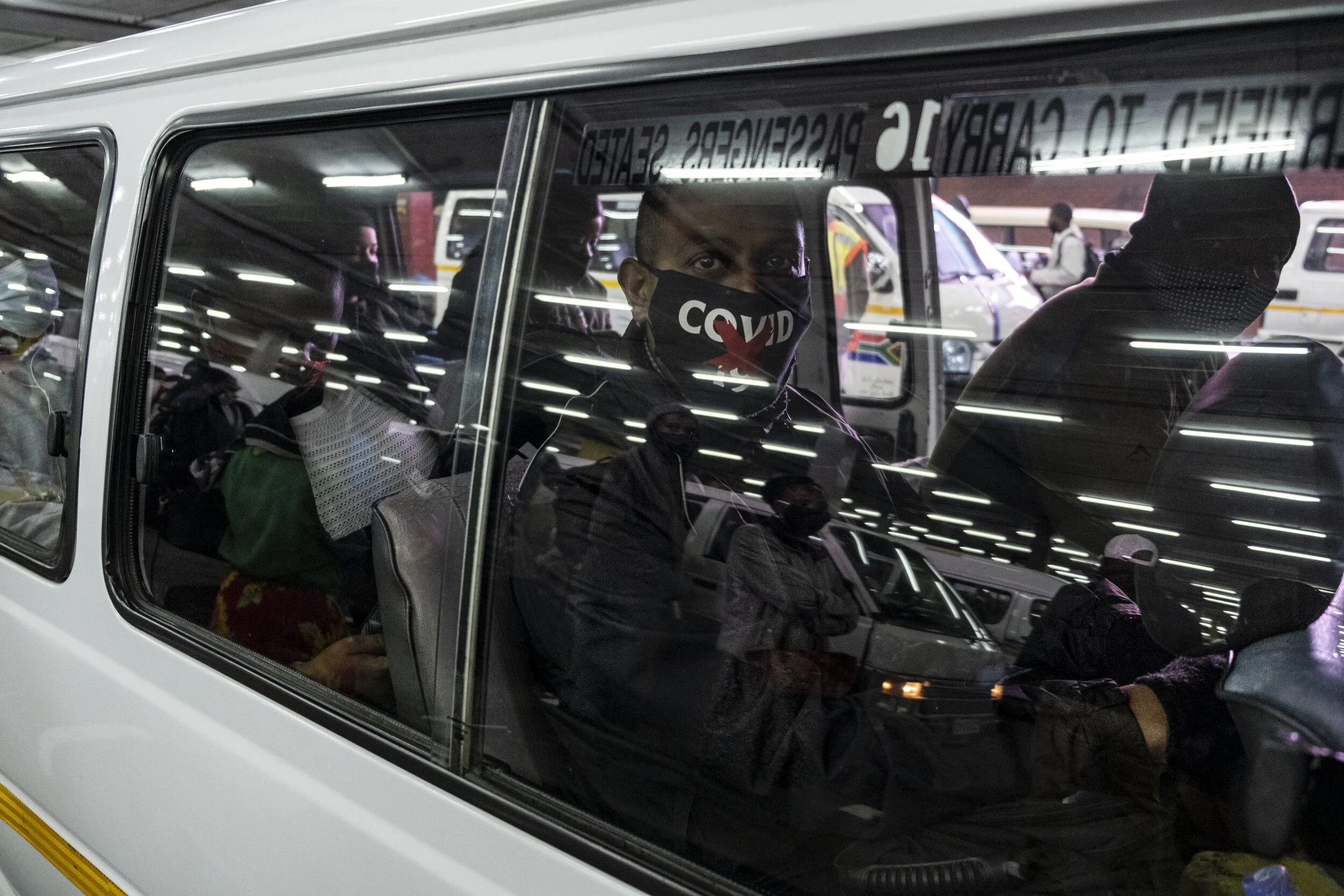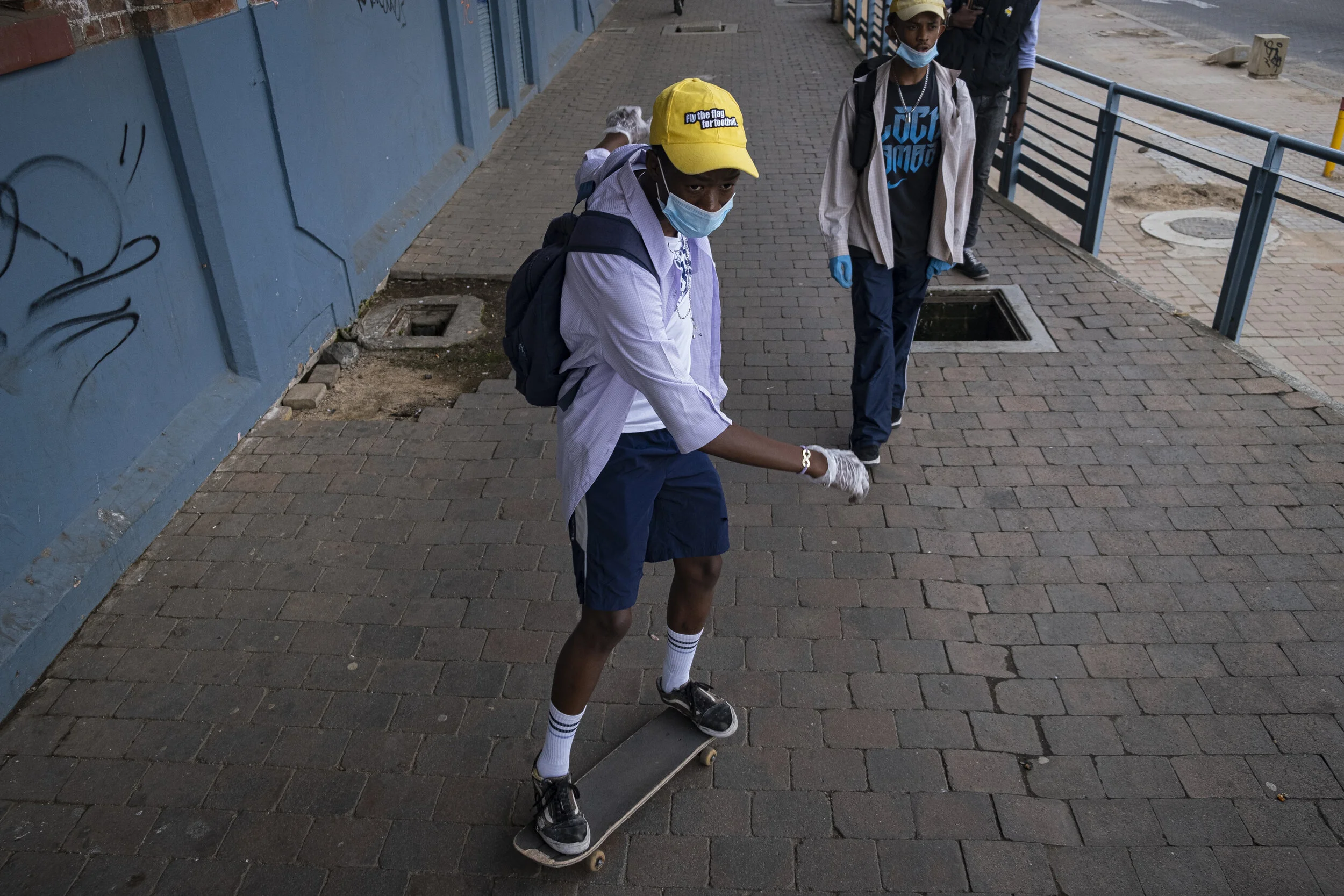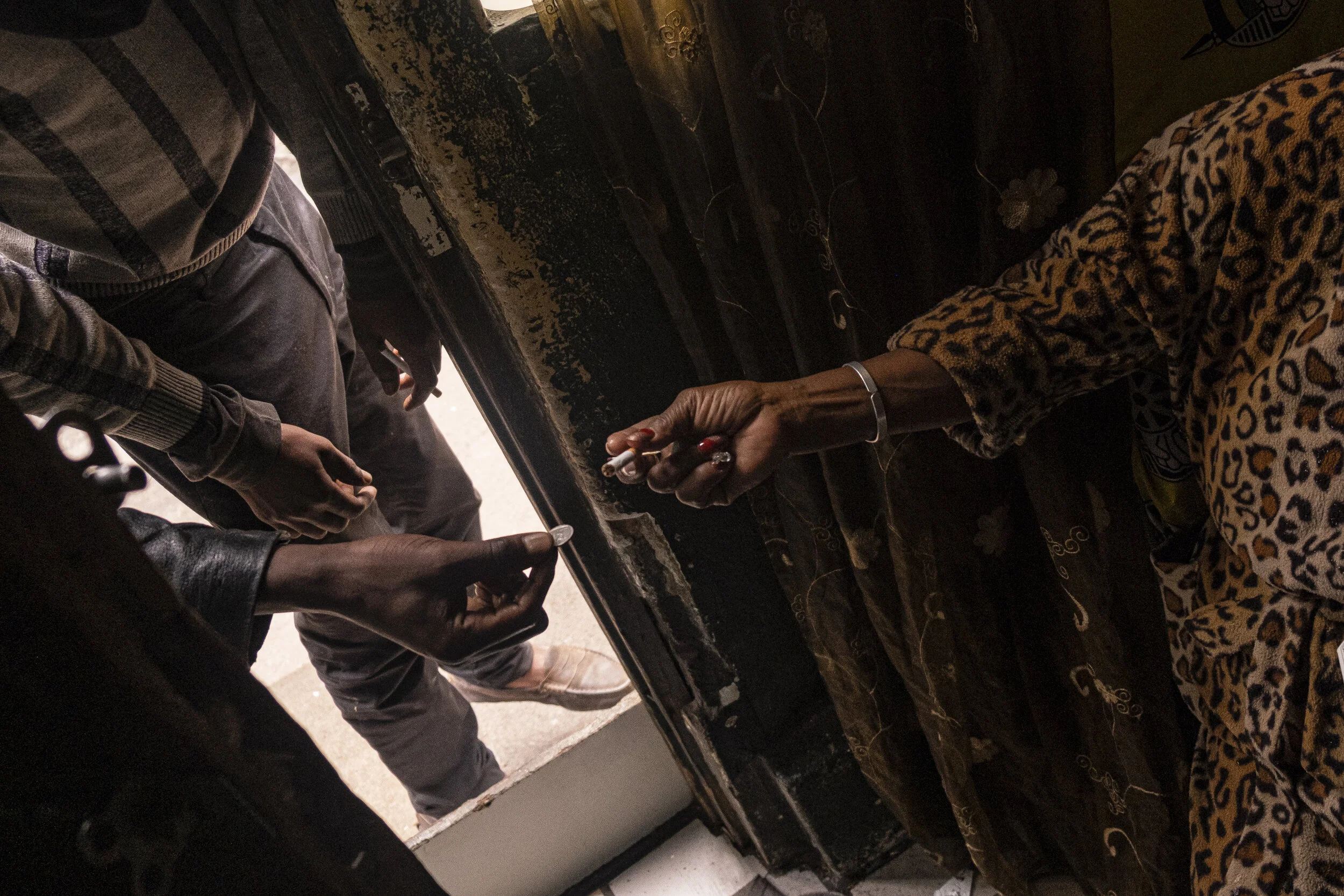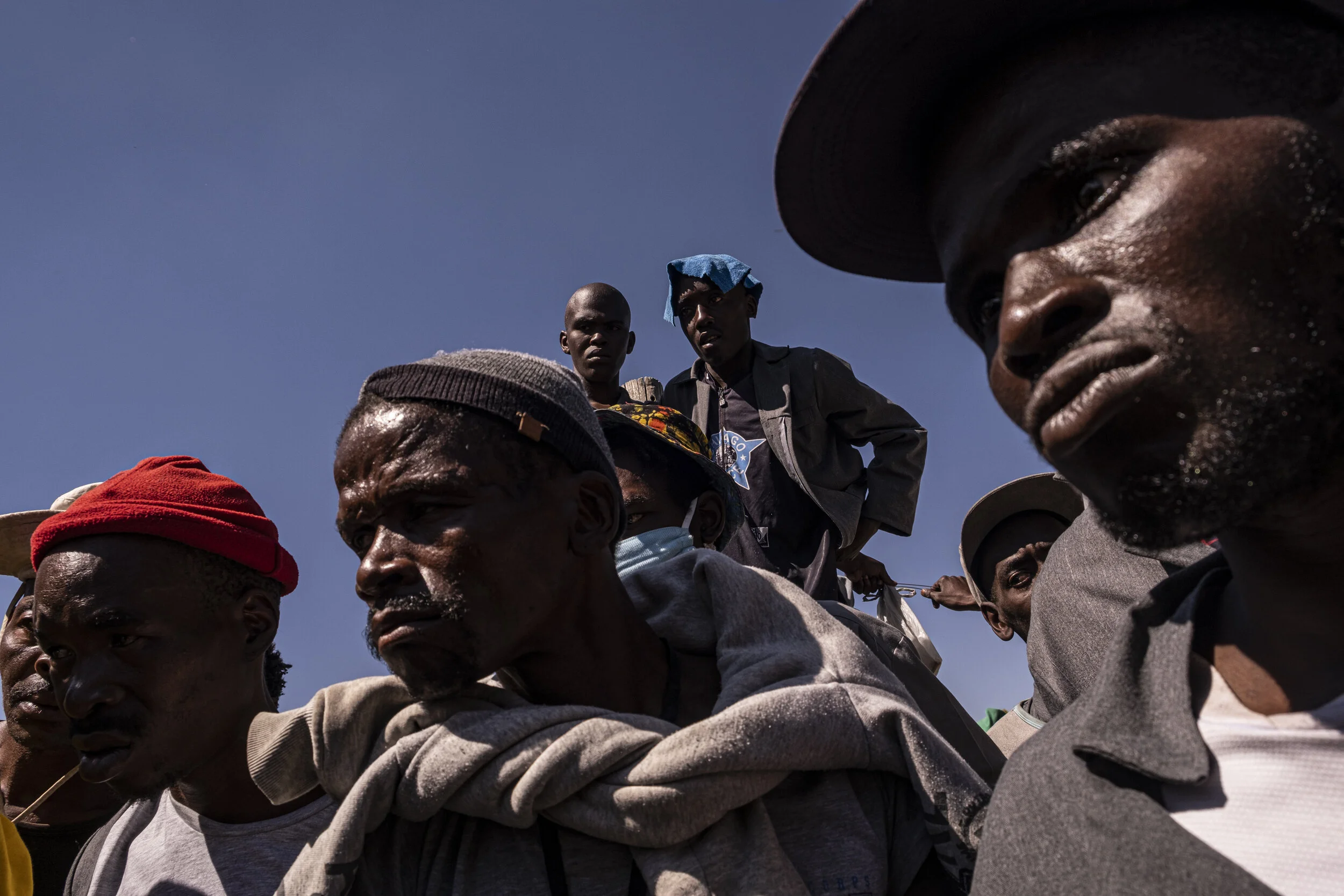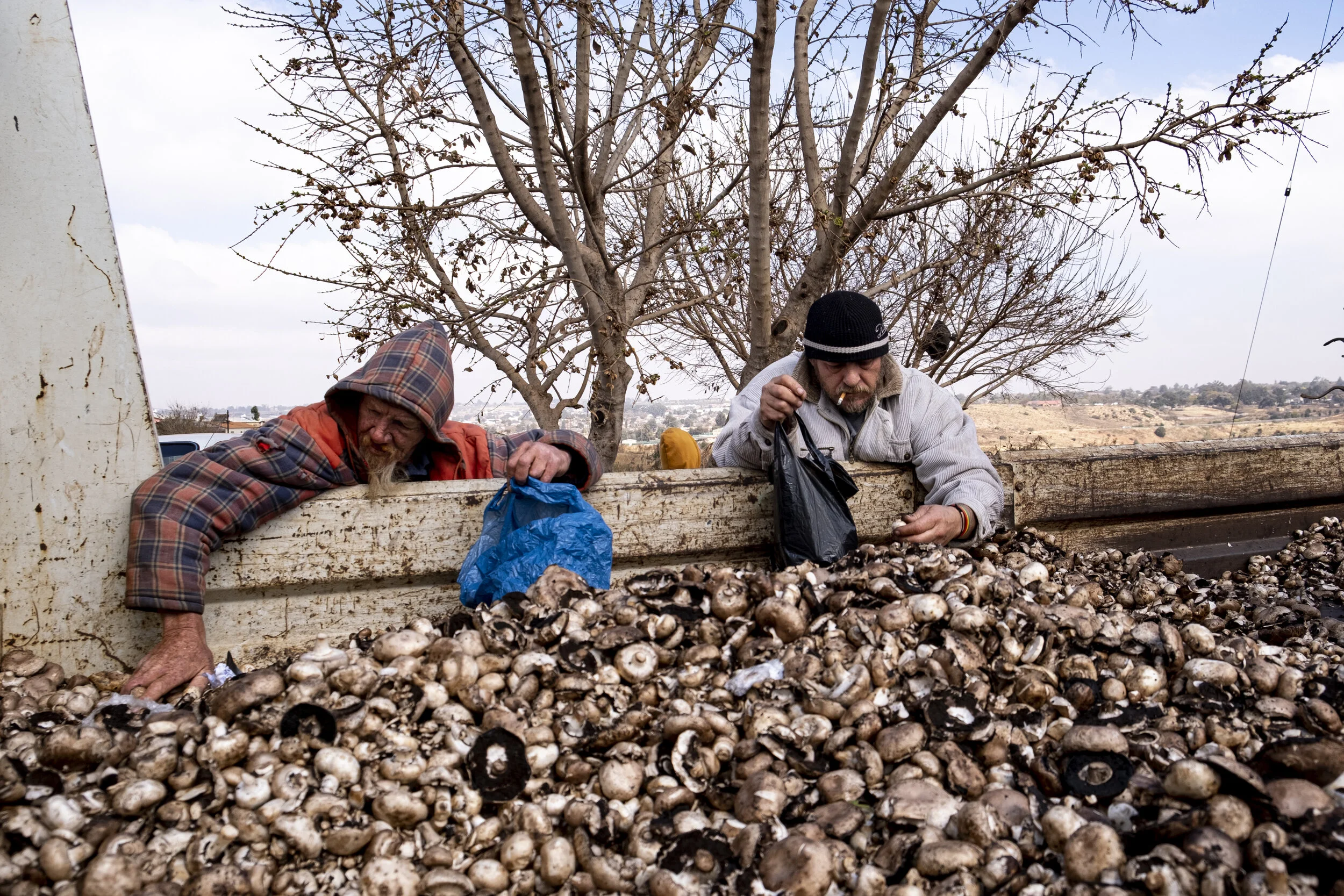
A state of emergency,
A state of panic;
The tale of a Pandemic
Wash your hands, wear a mask, stay at home.
South African President, Cyril Ramaphosa addressed the nation concerning the COVID-19 pandemic on the 15th of March 2020. The president announced a state of disaster for all South Africans and in turn, closed down Universities and Schools as-well-as ordered the population to stay at home unless for essential matters such as grocery shopping or essential jobs such as health workers.A substantial part of the South African population was left to their own devices during a long-lasting lockdown which kept the underprivileged from making decent incomes and pushing many to survive rather than live. As the COVID-19 Coronavirus caseload rose to over 200, the first signs of the general public wearing face masks and gloves emerged in small numbers in the Johannesburg CBD.On March 23, 2020, homeless shelters closed their doors until further notice amid concerns for the safety of residents, visitors and staff which lead many people back to the streets. On March 27, 2020, four days into the imposed lockdown, the underworld of the Johannesburg CBD became apparent. The South African Defense Force (SANDF), South African Police service (SAPS), Johannesburg metro police service (JMPD), the military police and the Gauteng traffic police came together, joining other African countries imposing strict curfews and shutdowns in an attempt to halt the spread of the COVID-19 Coronavirus across the continent. As operations lead by the South African authorities proceed in the Johannesburg CDB, the streets of the city quiet down, directing the operations indoors. On the lookout for illegally occupied flats, some are evicted at night during the COVID-19 Coronavirus national 21-day lockdown by authorities. Issues of social distancing and the mitigation of the COVID-19 Coronavirus become overpowered by the daily struggles and all the unexpected happenings of the inner city of Johannesburg.Temporary homeless shelters were put in place in response to the COVID-19 Coronavirus with the aim of containing the virus by keeping people off the streets. Homeless men were rounded up from the streets of Gauteng and brought to temporary homeless shelters around the province where they were unable to leave. Most of the temporary homeless shelters were overcrowded and not enough food was being provided, leaving them to fight over food parcels. Many of the men living in the shelters stopped using drugs during the lockdown and were supplied with methadone to better deal with drug withdrawals which in turn increased their appetite.South Africa’s health system is not reliable and pricey, leaving many to find alternative ways of healing. Traditional healing is a big business in South Africa. Traditional healer, Nthlanthla Chonco, creates alternative medications from his home at the Jeppe Hostel and prescribes them to residents of the Johannesburg CBD and believes to have found the cure for the COVID-19 Coronavirus. Residents of the area flock to Mr Chonco to be prescribed the “COVID-19 cure” costing as little as ten rands ($0.60). Further restrictions were put in place to curve the increase in COVID-19 cases. Taxi operations were mitigated, both the sale of alcohol and cigarettes became illegal which opened up a new sector in the black market. Many unemployed people started selling cigarettes and alcohol which gave them the opportunity to make incomes. As the COVID-19 Coronavirus lockdown regulations eased, many were still unable to work, leaving some depending on food donations to survive. This pandemic has had a ripple effect on the most underprivileged of our societies. Regulations put in place to protect us, put the population in dangerous life situations. Life’s securities for some, evaporated faster than hand sanitiser, leaving families unable to work and provide. It is only human to fight for survival although condemned during Lockdown periods, where police brutally arrested hundreds for being found in public in a time where staying at home does not put food on the table. Published Articles:
https://www.nytimes.com/2020/05/08/world/africa/coronavirus-south-africa-tobacco-alcohol-ban.html
https://www.aljazeera.com/gallery/2020/3/23/in-pictures-homeless-amid-the-coronavirus-pandemic
https://www.washingtonpost.com/outlook/2020/03/18/coronavirus-africa/
https://elpais.com/elpais/2020/09/21/planeta_futuro/1600671825_580645.html
Commuters wait for their taxi at Bree taxi rank in Johannesburg on June 1, 2020. The Taxi industry resumes it’s transport services after having its services limited in light of the spread of the COVID-19 coronavirus as the country moves to level three in a five-tier system put in place to enforce strict regulations to combat the spread of the COVID-19 coronavirus.
Employees at a Feeds and Seeds shop in Johannesburg wear face masks as a protective measure on March 17.
A resident of Diepsloot is tested for the Coronavirus at a temporary COVID-19 coronavirus testing station in Diepsloot, Johannesburg on May 8, 2020. As the COVID-19 Coronavirus lockdown regulations ease, the Department of Health conduct tests to monitor the number of cases in the country.
A taxi attendant sprays commuters with hand sanitiser before taking a taxi at Bree taxi rank in Johannesburg on June 1, 2020. The Taxi industry resumes it’s transport services after having its services limited in light of the spread of the COVID-19 coronavirus as the country moves to level three in a five-tier system put in place to enforce strict regulations to combat the spread of the COVID-19 coronavirus.
Residents of Diepsloot queue for donated food parcels organised by Engen Fuel Retailers along with the Celebration Church in Johannesburg, as they join hands to support over 4000 families by donating food parcels in Diepsloot, Johannesburg on May 8, 2020. As the COVID-19 Coronavirus lockdown regulations ease, many are still unable to work during the lockdown leaving residents depending on food donations.
The South African Police Service (SAPS), accompanied by the South African Defense Force (SANDF) interrogate a woman and girl in an operation to raid suspected illegally occupied flats in the midst of the COVID-19 Coronavirus pandemic in the Johannesburg CBD on April 2, 2020.
A soldier of the South African National Defence Force (SANDF) searches a pedestrian in an effort to assist the South African police to keep the law in order during the 21-day lockdown in the Johannesburg CBD on March 31, 2020.
Soldiers of the South African National Defence Force (SANDF) interrogate a pedestrian in an effort to assist the South African Police service (SAPS) to keep the law in order during the 21-day lockdown in the Johannesburg CBD on March 31, 2020.
A child is served donated food and drinks by the disaster management program in Newtown, Johannesburg on April 9, 2020. Most residents of the Bekezela informal settlement are unemployed giving them little to no option to provide for their families thus have to depend on food donations to survive through the imposed lockdown.
Government workers distribute hand sanitizer to Alexandra resident as a preventive measure against the spread of the COVID-19 Coronavirus in Johannesburg on April 2, 2020.
A homeless woman stands outside the Rosebank Homeless Shelter in Johannesburg with a suitcase containing all of her belongings, as the shelter closes its doors on March 23, 2020. The South African government says it will relocate people living in temporary shelters amid Covid-19 fears.
A homeless man reads a magazine at a temporary homeless shelter in Lyttelton Sports Park, Pretoria, amid the imposed nationwide lockdown as a preventive measure against the COVID-19 coronavirus on April 21, 2020.
Nthlanthla Chonco crushes leaves, roots and tree bark into powder form to create the Muti (Traditional medicine) he uses to cure the Coronavirus on August 1, 2020.
Nthlanthla Chonco prescribes a dose Muti (Traditional African Medicine) to a taxi driver as a prevention measure against the Coronavirus on August 6, 2020.
A health worker administers the Johnson and Johnson vaccine at the Chris Hani Baragwanath Hospital in Soweto on February 17, 2021.
Homeless men wait for Government donated food as the previous breakfast portions were too little to sustain them until lunch at a temporary homeless shelter in Lyttelton Sports Park, Pretoria, amid the imposed nationwide lockdown as a preventive measure against the COVID-19 coronavirus on April 21, 2020.
A member of the Celebration Church calls out families to collect donated food parcels organised by Engen Fuel Retailers along with the Celebration Church in Johannesburg, as they join hands to support over 4000 families by donating food parcels in Diepsloot, Johannesburg on May 8, 2020. As the COVID-19 Coronavirus lockdown regulations ease, many are still unable to work during the lockdown leaving residents depending on food donations.
Homeless men react to receiving a bigger food portion supplied by the Government as their breakfast portions which were too little at a temporary homeless shelter in Lyttelton Sports Park, Pretoria, amid the imposed nationwide lockdown as a preventive measure against the COVID-19 coronavirus on April 21, 2020.
Elize (BG-right) along with her son (BG-left) and helpers (FG-left\right), form a chain to distribute food to local children at the Munsieville white squatter camp on August 7th, 2020.
A child waits to be served donated food by the disaster management program in Newtown, Johannesburg on April 9, 2020. Most residents of the Bekezela informal settlement are unemployed giving them little to no option to provide for their families thus have to depend on food donations to survive through the imposed lockdown.
Residents of Diepsloot queue at a temporary COVID-19 coronavirus testing station in Diepsloot, Johannesburg on May 8, 2020. As the COVID-19 Coronavirus lockdown regulations ease, the Department of Health conduct tests to monitor the number of cases in the country.
Residents of Diepsloot wait for donated food parcels organised by Engen Fuel Retailers along with the Celebration Church in Johannesburg, as they join hands to support over 4000 families by donating food parcels in Diepsloot, Johannesburg on May 8, 2020. As the COVID-19 Coronavirus lockdown regulations ease, many are still unable to work during the lockdown leaving residents depending on food donations.
Commuters wait for the departure of they’re taxi at Bree taxi rank in Johannesburg on June 1, 2020. The Taxi industry resumes it’s transport services after having it’s services limited in light of the spread of the COVID-19 coronavirus as the country moves to level three in a five-tier system put in place to enforce strict regulations to combat the spread of the COVID-19 coronavirus.
A teenager skateboards in the Johannesburg CBD on March 20, 2020. The South African Government announced the closure of schools and universities in response to the COVID-19 coronavirus pandemic.
Residents of the Bekezela informal settlement stand in a queue to be served donated food by the disaster management program in Newtown, Johannesburg on April 9, 2020. Most residents of the Bekezela informal settlement are unemployed giving them little to no option to provide for their families thus have to depend on food donations to survive through the imposed lockdown.
A government worker fills up Alexandra resident’s bottles with hand sanitiser as a preventive measure against the spread of the COVID-19 Coronavirus in Johannesburg on April 2, 2020.
Residents of an apartment building in Hillbrow are left to stay outside for a night as their building caught fire after one of the residents forgot to turn off a stove. Issues of social distancing and the mitigation of the COVID-19 Coronavirus become overpowered by the daily struggles and all the unexpected happenings of the inner city of Johannesburg on April 17, 2020. The residents of the building were left sleeping together outside as the municipality could not relocate them to temporary housing for the night.
Homeless men eat government donated food at a temporary homeless shelter in Lyttelton Sports Park, Pretoria, amid the imposed nationwide lockdown as a preventive measure against the COVID-19 coronavirus on April 21, 2020.
Buying a cigarette at an undisclosed location in April after the South African government banned the sale of tobacco on April, 9 2020.
Homeless men wait for Government donated food as they discuss the previous breakfast portions which were too little to sustain them until lunch at a temporary homeless shelter in Lyttelton Sports Park, Pretoria, amid the imposed nationwide lockdown as a preventive measure against the COVID-19 coronavirus on April 21, 2020.
Residents of the Munsieville white squatter camp, pick mushrooms donated by a local farm during the COVID-19 pandemic on September 16, 2020.
Soldiers of the South African Military Police try to resuscitate a homeless man overdosing during an operation imposing strict curfews during the 21 day lockdown in the Johannesburg CBD on March 31, 2020
A homeless man wears a face mask as a preventive measure against the spread of the coronavirus in Johannesburg. African countries have been among the most recent to be hit by the global pandemic but as cases rise, many nations are now taking strict measures to slow the spread of the deadly illness.
63-year-old Fikile Mazibuko has been doing odd jobs as a cleaner to survive the pandemic but has decided to remain home considering her positive HIV status, which puts her at high risk of contracting the Coronavirus. Mazibuko has applied for Reconstruction and Development Programme (RDP) housing, due to her poor living conditions, with no luck she remains on a waiting list after over a decade on August 2, 2020
A resident of an apartment building in Hillbrow is left to stay outside for a night as their building caught fire after one of the residents forgot to turn off a stove. Issues of social distancing and the mitigation of the COVID-19 Coronavirus become overpowered by the daily struggles and all the unexpected happenings of the inner city of Johannesburg on April 17, 2020. The residents of the building were left sleeping together outside as the municipality could not relocate them to temporary housing for the night.
A health worker sprays sanitiser in a COVID-19 testing site at the Fourways life hospital in Johannesburg on June 28, 2021.
This website and all photographs are © Copyright 2019-2021 EMMANUEL CROSET. All Rights Reserved. The use of any of the photographs on this website without the written permission of the photographer is strictly prohibited and violations will be pursued to the furthest extent allowed under the law.

